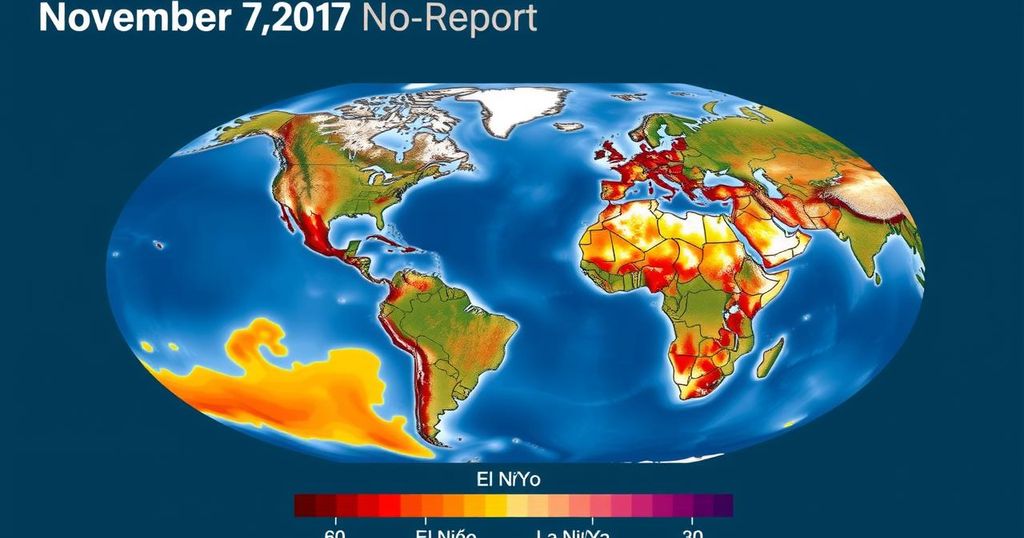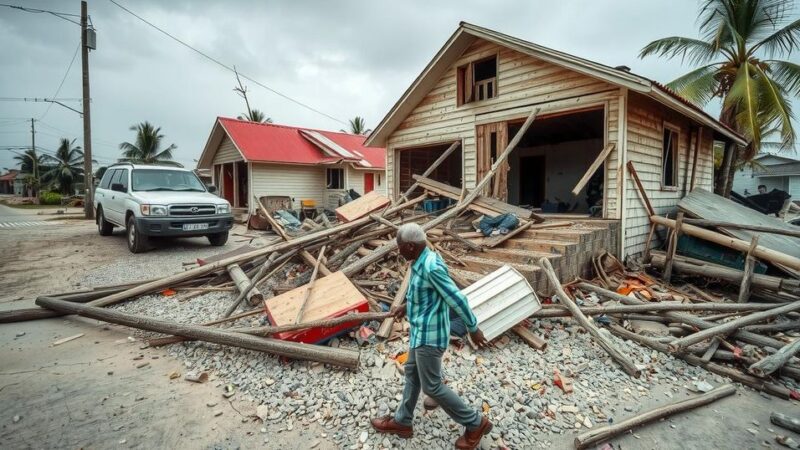The United Nations Climate Change Conference (COP29) resulted in a commitment to increase climate finance for developing nations to $300 billion annually by 2035. Despite this increase, the need for support remains critical as extreme weather events, intensified by climate changes such as El Niño and La Niña, impact over 1.6 billion people, especially in low-income countries that suffer substantial economic losses. Urgent action is required to provide aid and promote climate justice for those most affected by these changes.
In November 2024, the United Nations Climate Change Conference (COP29) convened in Baku, resulting in a new agreement aimed at enhancing climate finance for developing nations to $300 billion annually by 2035, a significant increase from the previous $100 billion. While this represents progress, critics argue that it remains insufficient for those who are most affected by the climate crisis. The ongoing threat posed by climate change is exacerbated by phenomena such as El Niño and La Niña, leading to extreme weather events that have already impacted over 1.6 billion individuals in the past five years alone. The economic repercussions of climate-related disasters are estimated to range between $115 billion to $300 billion each year, with low-income countries suffering the most due to their limited capacity for response and adaptation. In African nations, climate change may result in economic losses of up to 5-10% of GDP annually. It is imperative to advocate for climate justice to support those in climate hotspots—regions contributing minimally to global emissions—who risk being overlooked unless dedicated efforts are made to aid in climate resilience and adaptation efforts.
The issues surrounding climate change have gained unprecedented attention, especially in light of recent global discussions at the United Nations Climate Change Conference (COP29). With severe weather events becoming increasingly frequent due to climate phenomena like El Niño and La Niña, the necessity for financial support in developing countries has become critical. The financial commitments made at COP29, while enhanced, still fall short of what is required to address the challenges faced by vulnerable populations who bear the brunt of climate-related disasters. Understanding the economic implications of climate change is essential, as it disproportionately affects low-income nations, primarily in Africa, where the economic toll can be catastrophic.
In conclusion, while COP29 has made strides in increasing climate finance, it is essential to recognize that these efforts remain inadequate when considering the severity of the ongoing climate crisis. With the potential for exceeding the 1.5°C temperature rise threshold looming, urgent action is required to bolster support for climate adaptation and resilience, particularly for those least responsible for global emissions yet most affected by climate change. A concerted effort towards achieving climate justice is vital to ensure no one is left behind in this global challenge.
Original Source: reliefweb.int







